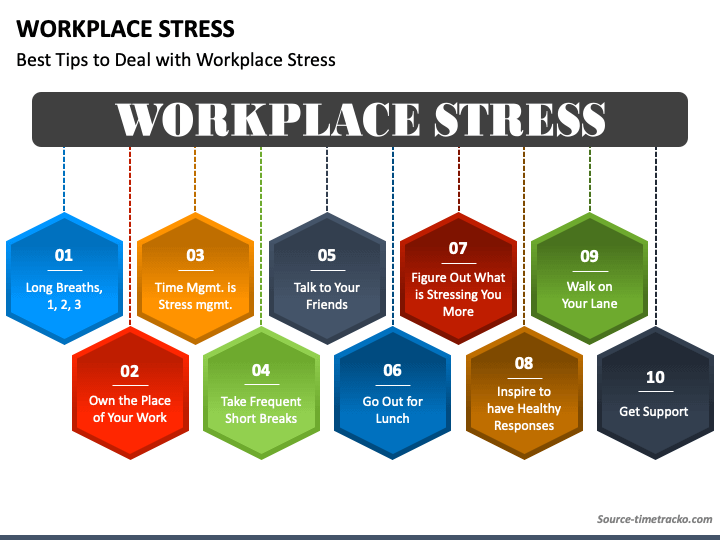
Tragic Demise of Young CA Anna Sebastian Perayil Reignites Concerns Over Work-Related Stress.
The sudden and heartbreaking passing of 26-year-old chartered accountant Anna Sebastian Perayil has sent shockwaves across the nation, shedding light on the devastating repercussions of unchecked workplace stress.
This unfortunate incident serves as a stark reminder of the pressing need to address the mental health implications of professional pressures.
Anna’s tragic death has sparked an outpouring of emotions and reflections within the corporate community, highlighting the alarming prevalence of work-related stress among young professionals.
As the country mourns the loss of this bright and promising talent, it also raises critical questions about:-
• The adequacy of workplace wellness initiatives
• The normalization of excessive work hours and pressure
• The stigma surrounding mental health discussions
• The role of employers in fostering a supportive work environment
This tragic event underscores the urgent need for a collective reckoning, encouraging organizations to prioritize employee well-being and promote a culture of mental health awareness.
The Indian Institute of Chartered Accountants (ICAI) has expressed condolences, emphasizing the importance of mental health support for professionals.
Experts stress the need for employers to recognize the warning signs of work-related stress and implement proactive measures.
Colleagues and friends remember Anna as a brilliant and dedicated professional, whose untimely passing has left a void in the CA community.
As the conversation around mental health gains momentum, Anna’s story serves as a poignant reminder of the human cost of neglecting workplace wellness.
The sudden and devastating passing of Anna Sebastian Perayil, a talented 26-year-old employee at Ernst & Young (E&Y) India, has ignited a fierce debate about the human cost of excessive work pressure in the corporate world. Anna’s heartbreaking story has resonated with young professionals across the nation, prompting calls for greater accountability and support for workplace wellness.
Anna’s family alleges that her overwhelming workload was the primary factor contributing to her tragic demise. After complaining of extreme exhaustion and fatigue, Anna was hospitalized on July 19 but sadly succumbed to her condition the next day.
Anna’s mother, Anita Augustine, has become a vocal advocate for change, shedding light on the circumstances surrounding her daughter’s death. In a poignant and powerful letter addressed to EY India’s CEO, Rajiv Memani, Anita expressed her deep disappointment and anguish over the company’s alleged neglect of employee well-being.
The viral letter accused EY India of prioritizing productivity over people, highlighting the severe mental and physical toll of unrealistic expectations on employees. Anita’s courageous stance has sparked a national conversation, prompting introspection within the corporate community.

The Alarming Rise of Work- Related Pressure in India’s Corporate Sector
The tragic case of Anna Sebastian has shed light on a disturbing trend sweeping across India’s corporate landscape. Work-related stress has reached alarming proportions, transcending industries and geographical boundaries.
The consequences are devastating, with numerous instances of employees succumbing to unbearable pressure, resulting in loss of life or severe health repercussions.
Recent years have witnessed a surge in distressing incidents:
• Young professionals collapsing under excessive workloads
• Executives struggling with anxiety and depression
• Employees sacrificing their well-being to meet unrealistic targets
This nationwide crisis demands attention, prompting questions about:
• The root causes of India’s work stress epidemic
• The role of employers in fostering a supportive work environment
• Effective strategies for mitigating workplace pressure
• Government initiatives to address the growing concern
Experts warn that India’s competitive business environment, coupled with cultural expectations and societal pressures, has created a perfect storm of stress. The consequences extend beyond individual suffering.

Recent cases focusing on work- related stress
• In May this year, Himanshu, a deputy manager at a private bank in Ujjain, Madhya Pradesh, committed suicide after telling his sister about the intense pressure he was facing at work. “I cannot take it anymore, I will not return home,” he said in his final phone call before consuming poison.
• In August, a postmaster in Etah, Uttar Pradesh, ended his life by hanging. He had only been in the job for six months but reportedly felt overwhelmed by the amount of work he was expected to complete.
• In August last year, 35-year-old Banoth Suresh, a State Bank of India (SBI) manager in Telangana, committed suicide by ingesting pesticides, with his family attributing his death to excessive work-related stress.
The psychological and physical impact of stress
According to a study by the National Sample Survey Office (NSSO), over 60% of employees in India report experiencing stress at work. A separate World Health Organization (WHO) study found that one in four Indian employees suffer from work-related stress. These numbers illustrate a concerning trend of burnout, absenteeism, and declining productivity.
Furthermore, research from the National Center for Biotechnology Information (NCBI) shows that people who perceive stress as detrimental to their health are 43% more likely to experience premature death. In the United States alone, stress contributes to approximately 20,231 deaths annually, a figure comparable to fatalities from high blood pressure and kidney disease.
Narayana Murthy’s controversial call for 70-hour work weeks
The debate over work hours in India reached a peak in November last year when tech industry pioneer N.R. Narayana Murthy, co-founder of Infosys, suggested that the youth should be prepared to work 70 hours a week to help accelerate India’s economic growth. His remarks were met with mixed reactions, with some viewing his call to action as inspiring, while others criticized it as unrealistic and harmful to employees’ well-being.
Striking a balance: How to handle work stress
Experts agree that companies must take steps to mitigate the rising epidemic of work stress. Psychologist Dr. Jini K. Gopinath, in an interview with ABP News, emphasized that most individuals perform effectively for about 8 hours a day. Prolonged work hours can hinder clear thinking and creativity. She highlighted the importance of taking regular breaks during work to maintain focus and well-being. “Breaks help improve concentration and overall mood,” she stated. Dr. Gopinath also pointed out that since everyone works differently, it’s essential for people to pace themselves according to their personal capacity.
The need for change
The alarming rise of work-related stress necessitates a seismic shift in corporate culture. Companies must move away from glorifying excessive working hours and intense pressure, instead embracing empathy and support.
A safe, non-judgmental environment is crucial, where employees feel empowered to discuss mental health concerns without fear of repercussions.

Dr. Gopinath emphasizes the importance of balance in life and proactive stress management for overall well-being. Unchecked stress can have devastating consequences on both mental and physical health, including:
• Anxiety and depression
• Cardiovascular disease
• Burnout and decreased productivity
• Impaired cognitive function
To mitigate these risks, companies should:
• Foster open communication about mental health
• Encourage work-life balance
• Implement stress-reduction initiatives (e.g., mindfulness programs, flexible work arrangements)
• Provide access to mental health resources and support
By prioritizing employee well-being, companies can:
• Boost morale and engagement
• Enhance productivity and performance
• Reduce absenteeism and turnover
• Improve reputation and attract top talent
As Dr. Gopinath stresses, maintaining balance and managing stress is essential.
Companies must take proactive steps to:
• Monitor workloads and prevent burnout
• Recognize and reward employees’ mental health efforts
• Lead by example, with leaders prioritizing self-care
It’s time for a cultural transformation, where employee well-being supersedes productivity and profit.
Anna Sebastian’s tragic death and other cases like hers underscore the urgent need to address the growing problem of work stress in India. As investigations into her death proceed, it is clear that greater awareness, along with stricter regulations regarding work hours and workload management, is necessary to prevent future tragedies. Employers must prioritize their employees’ well-being, recognizing that a healthy, supported workforce is the key to long-term success.


